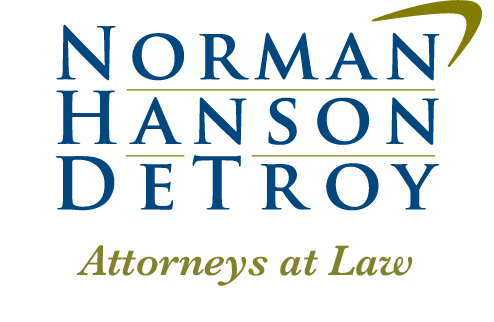
Attorney Profile
Aaron Baltes represents businesses and individuals in an active trial practice that includes family law, personal injury, property damage, landlord-tenant disputes, real estate, contracts, construction litigation and criminal defense. Representing diverse businesses and individual clients, Aaron has developed accomplished skills in negotiation, case preparation and persuasive trial advocacy. He has extensive jury trial experience and several of his cases have resulted in reported decisions from the Maine Supreme Judicial Court. He is also qualified and licensed to argue before the First Circuit Court of Appeals and the United States Supreme Court.
Aaron utilizes his trial experience and understanding of Maine’s commercial and industrial economy, as well as his grasp of clients’ business goals and challenges, to advise and consult with them on risk management and the avoidance of liability.
While attending the University of Maine School of Law, Aaron was Articles Editor for the Maine Law Review and worked for two years with the Maine Unemployment Insurance Commission Legal Department as a Law Clerk. Following his law school graduation, with high honors, Aaron was selected to serve for one year as a clerk for the Penobscot County Superior Court, joining Norman Hanson DeTroy in 1999.
Several of the cases Aaron has argued resulted in determinations that have had an impact in a number of commercial areas. Here is a synopsis of a few of these holdings:
- The Runnells decision is important because it clarified that a builder can recover in quantum meruit for extra work performed pursuant to a verbal agreement even if the parties’ original written agreement required change orders to be in writing.
- In Wood v. Bell, Aaron proved to a jury that his client had acquired title to land by adverse possession. But the trial judge entered a contrary judgment notwithstanding the verdict and the case was appealed to the Maine Supreme Judicial Court, which reinstated the jury’s verdict and held that it was the jury’s role to determine the adverse possessor’s intent in occupying the disputed land. And, setting a precedent, the Wood court ruled that the adverse possessor could recover forfeiture damages for trees cut by the record title owner without tree measurements.
- In the Mehlhorn case, the Maine Supreme Judicial Court held that the statutory trespass action was the exclusive remedy for trespasses involving tree cutting. Aaron was successful in upholding the trial court’s determination that mandatory minimum statutory damages could be assessed against each of several defendants.
- Aaron achieved another appellate victory in Boggs v. Berthiaume, upholding a trial judge’s ruling denying a protection from harassment order.
Affiliations
Admitted to Practice
- State of Maine
- U.S. District Court, District of Maine
- U.S. Court of Appeals, First Circuit
- U.S. Supreme Court
Member, Past and Present
- Maine State Bar Association, Member
- Board of Bar Governors, Past Member
- Young Lawyer’s Section, Past Chair
- Cumberland County Bar Association, Member
- Children’s Museum and Theatre of Maine, Past Board Member and Secretary
- Business Network International
Selected Reported Cases
- Runnells v. Quinn, 2006 ME 7, 890 A.2d 713.
- Wood v. Bell, 2006 ME 98, 902 A.2d 843.
- Mehlhorn v. Derby, 2006 ME 110. 905 A.2d 290.
- Boggs v. Berthiaume, 2008 ME 169.
- Testa’s, Inc. v. Coopersmith, 2014 ME 137.







